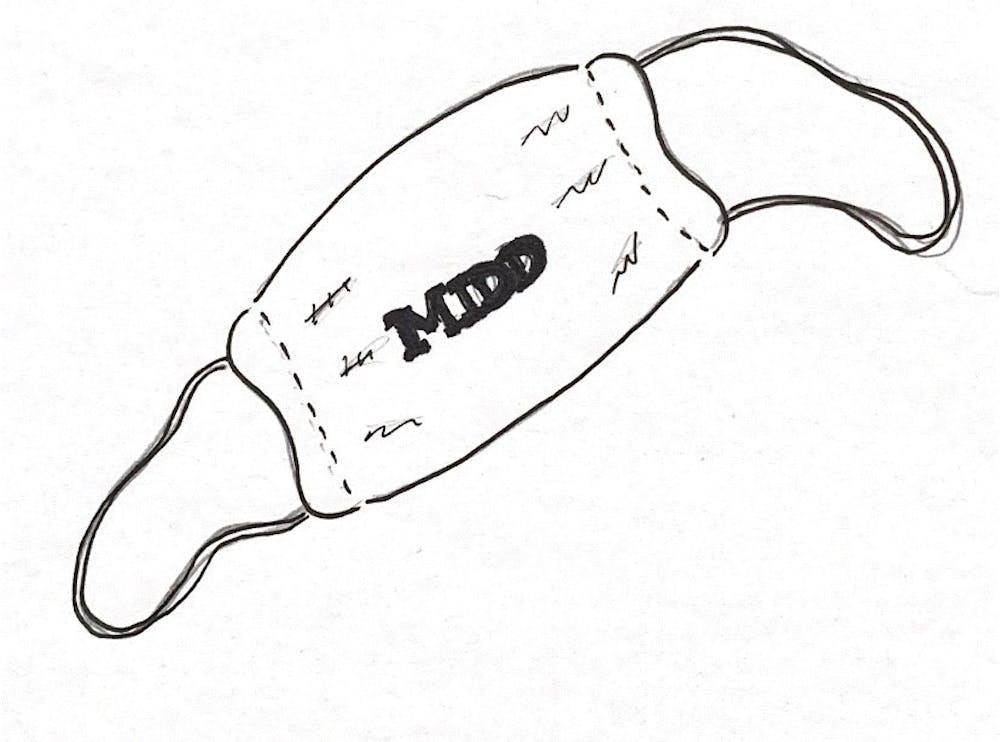He had that je ne sais quoi of a boy who refused to wear his retainer after he got his braces off.
For better or for worse, his athletic team roster pictures, all of which were defined by an alarmingly eager smile, would be immortalized on the internet, fair game for women and employers alike to do the cursory I-need-to-confirm-you’re-not-an-axe-murderer Google search.
I had always admired him from afar, his sinewy frame coasting through campus, commanding my gaze and willing the corners of my mouth to turn up into a wry smile. Deeply reminiscent of a sixth grader with gum in hair, he obsessively ran his fingers through his locks. To the untrained eye, it may have looked like nonchalance. To me, however, it was an ostensible performance, one I could identify only because I executed the same one.
I would observe him conspicuously, eyes trailing the back of his shoes and then scanning upwards towards his outline, his bones surrounded by joggers and sweatpants. My speech crescendoed when he was near, a subconscious attempt to draw him into my orbit. Save for a stolen glance in a narrow hallway of Warner last spring, we remained strangers, native to corners of campus that seldom overlapped.
And then, when we got sent home for Covid, I found his name lighting up my phone screen, a name I would soon grow familiar with.
Although we never formally met, I wish we could’ve talked at Midd. You looked beautiful when we ran into each other in Warner.
With that began my quarantine love affair.
While our peers were probably taking advantage of the resources offered by the SGA’s April 26, 2020 email (sexting tips and links to ~feminist~ porn sites), the two of us opted for a relatively more innocuous route.
We quickly fell into four-and-a-half-hour phone calls, a duet of laughs that closed the 40 miles between us. Ebbing and flowing, our voices barely made it above a whisper in the early morning hours, either making up for lost time on campus or, just as likely, filling the pandemic’s uncertainty with the familiarity of Middlebury.
The only thing getting me through quarantine, Maria, is knowing I can see you on the other side. I just want to kiss you.
I had a particular certainty about him, a sense of security rooted in the “will-bes” of our newfound bond rather than the “what-ifs” of our missed connection on campus.
And then, he went silent.
A simple read receipt on my last text. When I called, he never picked up.
I like to consider myself a socially-adjusted individual (we should, however, leave that judgement to the masses), but I have never understood the all-too-common phenomenon of ghosting — an extreme expression of interest followed by an unexplained vanishing. There are few situations in which a healthy relationship, whether romantic or platonic, would require an abrupt cutting of ties.
And yet, many of us have been ghosted.
The logic is counterintuitive — in an era when our phones seem to be extensions of our hands, shouldn’t we have more opportunities to communicate our romantic interest (or lack thereof) to someone? Interestingly, the media platforms intended to connect us (Instagram, Snapchat, the list goes on…) actually facilitate the severing of our relationships. While our parents’ generation largely rejected love interests by having “the conversation,” that strategy has since been suffocated by read receipts, slow response times (is he a bad texter or is he not into me?), and “boxed” Snapchats.
Now, more than ever, people can flit in and out of our lives with neither accountability nor an explanation. On top of this, Covid has increased the acceptance of internet connections (there is certainly less Tinder stigma out there), and raised the stakes of our conversations. With decreased concern about running into the person you’re talking to (or, perhaps, not even recognizing them with a mask on), some of the anxiety that usually plagues these connections is removed.
On one hand, this can be liberating. On the other hand, cues that would typically exist in person, such as poor eye contact or closed body language, are lost in cyberspace. For those who opt for the I’m-going-to-pretend-like-I-want-to-date-you-and-then-disappear strategy (is it something I said?), this creates the perfect context for tapping out of our lives without explanation.
In such ambiguous experiences, how can we glean closure?
In truth, I am someone who loves to tie everything up into a little bow. I don’t like “open items,” and I usually opt for directness in all of my relationships (this is not to say, however, that I have not avoided important, oftentimes awkward, discussions).
But something I’ve been learning over quarantine is that romance isn’t clear. There’s gray space and emotional baggage and insecurity. Sometimes, you don’t get to read the last page of the book because someone ripped it out first. And so, when faced with people who play disappearing acts, perhaps it has less to do with us, and more to do with how those people handle relationships. And if, somehow, we squeeze an explanation out of a ghost, it probably won’t be an honest one coming from the person who had little regard for our feelings.
MASK OFF, MIDD: Don’t let the ghosts scare you.
MASK OFF, MIDD: I quarantine-dated Casper the Ghost.

Comments

